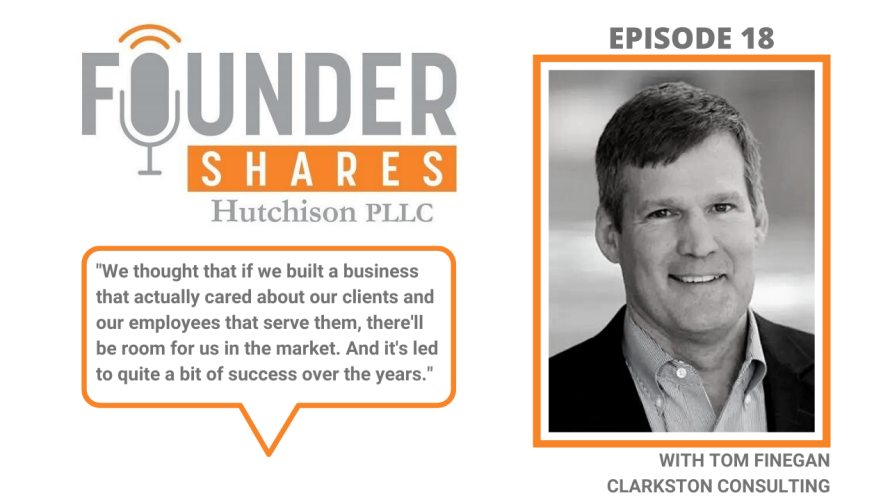How Great Leaders Amplify the Power of Teams, with Tom Finegan

It’s not personal, it’s just business. Tom Finegan wanted to know why it couldn’t be both.
In 1991, he was working for a successful consulting firm, but he felt that the company cared more about their bottom line than their clients' success. He made the leap to entrepreneurship, and is now a serial entrepreneur with 30 years of startup success to share.
“We thought that if we built a business that actually cared about the clients we served and our employees that served them, there would be room for us in the market,” Finegan told us. “It was truly a David and Goliath story.”
The CEO of Clarkston Consulting said they competed through “client intimacy.” They proved that they would do whatever necessary to ensure their projects were successful.
“That's been our guiding beacon since the beginning,” Finegan said, “that and to do the right thing, and it's led to quite a bit of success over the years.”
But as wonderfully as they treat their clients, they had to be hired by those clients first, competing against Goliaths like Arthur Andersen, Deloitte, IBM and Ernst and Young.
“We were able to get a couple of Fortune 50 clients right from the beginning,” Finegan said. “And from there, we were able to build, and leverage, and when someone had the objection, ‘Why should we hire you?’ we could look them in the eye and say, ‘Well, Dow Chemical has a very sophisticated purchasing process and a rigorous selection criteria, and they selected us. They're five times bigger than you are.’”
He said nothing is ever perfect, though, and that no one can do large-scale, transformational projects without messing something up along the way. The difference between Clarkston and their competitors is that, if something doesn’t go correctly, the CEO, the President or one of the company’s partners will show up on site and own up to the mistake.
“Here's what we're going to do to make it right,” Finegan said. “When we take that attitude, a corrective action attitude, our clients embrace us for that. They say, ‘OK, let's get to work. Thank you for acknowledging it. Let's fix it.’”
Building a company like Clarkston is only possible with, what Finegan calls, amplifiers. In his book, Amplifiers: How Great Leaders Magnify the Power of Teams, Increase the Impact of Organizations, and Turn Up the Volume on Positive Change, he talks about the qualities entrepreneurs should look for when staffing a successful startup.
“Of course they need skills,” Finegan said, “but they are also likely to have more work to do than they've got people to do it, and they need people who are our contribution seekers. It's one of the traits in amplifiers, the people who may get their work done by three o'clock in the afternoon. And, instead of peacing out, they're looking to contribute and help their colleagues.”
He says startup culture is “all hands on deck.” Sometimes they need you to do something you weren’t trained to do, and there aren’t other people who can get it done, but the company needs it. Amplifiers aren’t afraid to do whatever it takes to get the job done.
To learn more about what it takes to be an amplifier, you can purchase Finegan’s book on Amazon. And to hear more about Clarkston Consulting’s story, hear his episode of Founder Shares available wherever you listen to podcasts.
The blog content should not be construed as legal advice.


Show Comments / Leave a Comment
Comments
There are no comments yet.
Leave a Comment